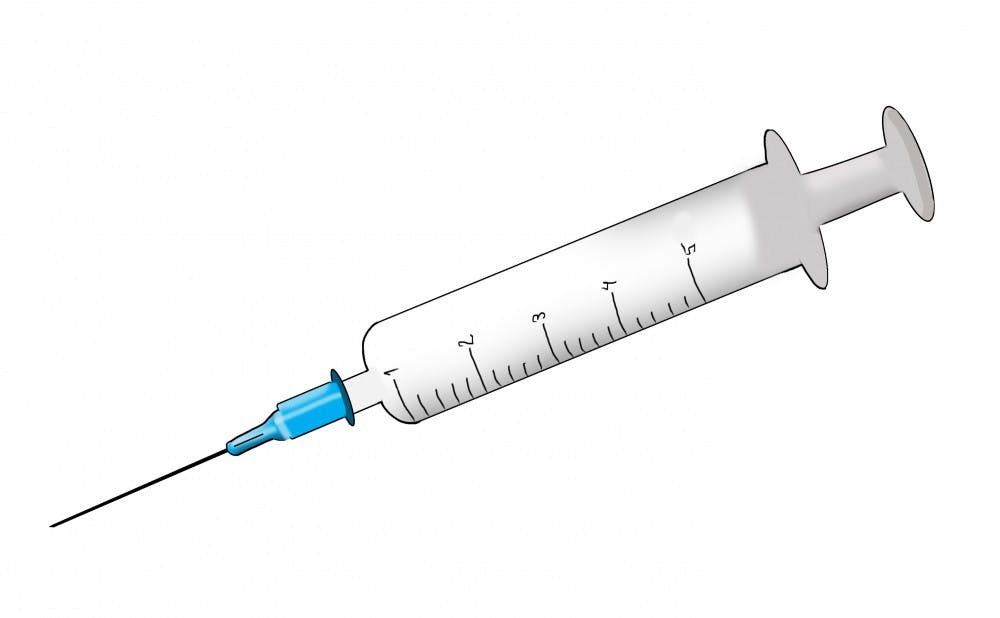Many would be excited by the prospect of immortality, and some people believe the world is on its way to a vaccine or cure for every disease. However, research from the Duke Global Health Institute suggests we’re not as close as we think.
The Center for Policy Impact in Global Health at the Duke Global Health Institute recently published a study analyzing 538 candidate products for 35 identified neglected diseases to estimate the likelihood of these products reaching the launch point. The researchers discovered that the current options aren’t likely to produce effective vaccines for tuberculosis, HIV and malaria. The study was part of a 18-month collaboration among 16 researchers from across the world.
This study was the first of its kind to consider an entire portfolio of neglected health problems and the efforts being made to address them, unlike other studies that focus on specific countries or diseases in isolation.
“One of the areas of great interest for DGHI is the area of public goods for health, tackling shared health challenges that go beyond borders of individual countries, sharing knowledge and conducting research,” said Gavin Yamey, director and founder of the Center and co-author on the study.
Yamey noted that the 35 neglected conditions identified by the research team predominantly affect people in low- and middle-income countries (LMICs), including HIV, malaria, TB and tropical diseases.
“We looked across the whole portfolio, allowing us to say where we see the portfolio is weak and strong," Yamey said. "To the best of our knowledge, this hasn’t been done before."
Researchers needed to collect data from diffuse sources and process into categories before being able to create their models and projections.
Yamey explained that the first step in the investigation was trying to understand exactly what candidate products are in the research and development pipeline.
The search required casting a wide net, working with Policy Cures—an independent group in Australia that provides research and analytic tools for creating pharmaceuticals—and surveying companies, product development partnerships and academic literature.
“There is no central place you can go for that,” he said. “It’s a large amount of detective work.”
Once they had compiled a list of candidate products to conduct their research, the team utilized a new tool designed by the WHO’s Special Programme for Research and Training in Tropical Diseases: the Portfolio-2-Impact (P2I) Model. It is a modeling tool they could use to analyze candidate medicines, diagnostics, vaccines and other medical technologies at different stages of development to determine the likelihood of each product reaching product launch.
Yamey explained that the model utilizes data from thousands of previous products to inform its predictions of success rates, costs and time spent in each phase of development.
But, before they could use the program, the team needed to organize their 538 products into groups used by the model. Once candidate products were sorted, they were all entered into the P2I Model. The model estimated—based on what’s currently in the pipeline and what we know about standard rates of success—what we can anticipate will be launched, what the cost of the launches will be and what we are not likely to get out of this, Yamey explained.
Researchers estimated that it would take $16.3 billion to move the 538 applicable products through the pipeline. As a result 128 out of the 538 will reach the launch-point.
However, as noted in the publication, the model suggests there would be very few launches of complex new chemical entities. Any launches of highly efficacious vaccines for HIV, TB or malaria would be unlikely.
Yamey also explained that vaccines and treatments for neglected tropical diseases and combined diarrhea are unlikely to be produced. There will still be some gaps in terms of some of the breakthrough technology we need in order to achieve the Sustainable Development Goals signed by all United Nations member states.
At a U.N. summit in September 2015, world leaders adopted 17 goals for the 2030 Agenda for Sustainable Development. One of the goals to “ensure healthy lives and promote well-being for all at all ages.”
Within goal three, the Agenda calls for ending the epidemics of HIV, TB and Malaria and ending preventable child and maternal death.
“It’s impossible to achieve those goals without new breakthrough health technology,” Yamey said. “One of the findings here is that based on what’s currently in the pipeline, there are several critically needed health technologies that we are unlikely to develop in time to achieve the 2030 sustainable development goals for health.”
Yamey pointed out one positive result of the investigation: the pharmaceutical community is likely to produce a large number of new diagnostic tools.
Get The Chronicle straight to your inbox
Sign up for our weekly newsletter. Cancel at any time.
However, he highlighted certain detrimental diseases that are almost entirely neglected, such as Hookworm—a tropical disease that affects 450 million people but that receives only approximately one percent of international funding for tool development annually.
“We are underinvesting across the board when it comes to global health," Yamey said. "In terms of research and development, funding has been steadily falling since 2009, we’ve seen stagnation of global health aid since the global financial crisis at a time that many of us in the research community are seeing a need for scaled-up investment."
While the research community is seeing some middle-income countries—such as Brazil, India and China—investing in their own health research and development, they hope to see more middle-income countries come to the table to invest.
Yamey noted that although the health and social impacts achievable through more investment and research are exciting, the need goes beyond that.
“[Public health discoveries] have a profound development effect: the returns to investing in global health are some of the largest, with a profound benefit to the economy, as well as social and health effects,” Yamey said.

